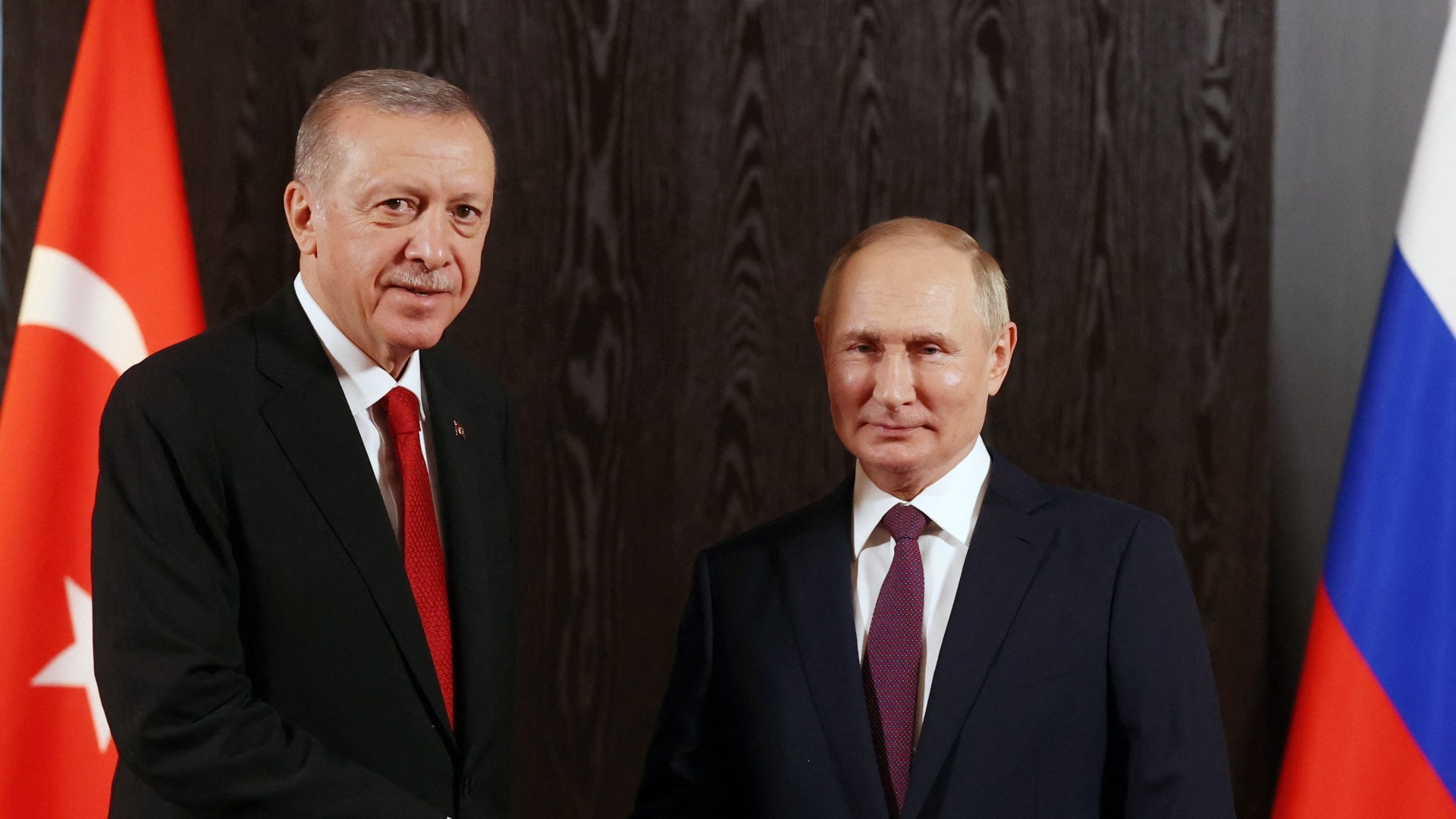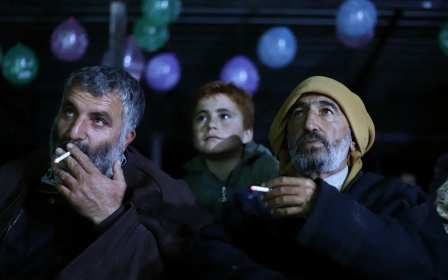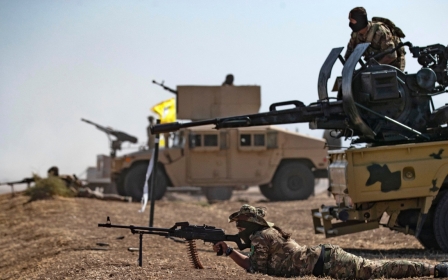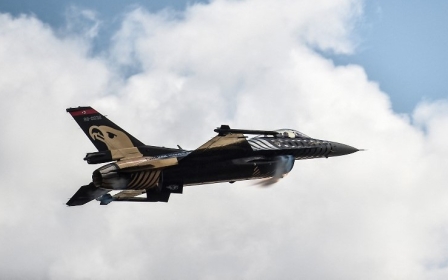Turkey: Erdogan outlines roadmap to Syria reconciliation

Turkish President Recep Tayyip Erdogan said on Thursday that Ankara wants to normalise ties with the Syrian government through trilateral contacts that would include Russia.
“As of now, we want to take a step as a Syria-Turkey-Russia trio,” Erdogan said. “For this, first our intelligence organisations should come together, then our defence ministers should come together, then our foreign ministers should come together. Let's come together as leaders after their talks.”
Erdogan said he made this proposal to his Russian counterpart Vladimir Putin, who he said had already agreed to the roadmap. In August, Erdogan said that Ankara isn't seeking the removal of Syrian President Bashar al-Assad from power, signalling a shift from his policy of backing the uprising against Assad's government over the last 10 years.
However, he also added that Turkey won’t tolerate the presence of Syrian Kurdish militant groups along the Turkish border. Turkey views the People’s Protection Units (YPG) militia as an extension of the PKK, an armed Kurdish faction that has been at war with the Turkish state for decades.
'First our intelligence organisations should come together, then our defence ministers should come together, then our foreign ministers'
- Recep Tayyip Erdogan
Erdogan said Turkey will continue to target the YPG within the 30km zone south of its border that was declared a buffer area in a set of deals with Assad's patron Russia.
New MEE newsletter: Jerusalem Dispatch
Sign up to get the latest insights and analysis on Israel-Palestine, alongside Turkey Unpacked and other MEE newsletters
Turkey began an intensive bombing campaign in northern Syria in response to a deadly terror attack in Istanbul in November. Both Syrian government forces and YPG fighters have been killed in the Turkish response. The YPG and PKK deny any involvement in the Istanbul bombing.
Erdogan accused the YPG of operating oil wells with US protection only to sell the product to Damascus.
“Where are they selling the oil? They sell to the regime,” Erdogan said. “But now patience is over. Now we have taken and are taking all kinds of steps towards their refineries, oil wells, etc."
Turkey has also targeted the oil wells over the past month, creating tensions with the US, which has forces in the vicinity and supports the SDF, a militia led by the YPG that has been combating the Islamic State group.
During the same remarks, Erdogan also rallied against the EU foreign policy chief Josep Borrell, who recently criticised Ankara, an EU candidate country, for not joining the union's sanctions against Russia
“I do not take Borrell as my interlocutor,” Erdogan said. “He can only be [Turkish foreign minister] Mevlut Bey's interlocutor. His explanation is not elegant at all. In other words, Borrell cannot appoint or regulate our relations with Russia. He has neither the quality nor the capacity to make such a decision on these matters. A very ugly explanation."
Erdogan said that thanks to Ankara’s outreach to Moscow, Ukrainian grain has been getting transported through the Bosphorus strait to Europe, satisfying 44 percent of European demand. He added that Russian fertilisers and ammonia will soon be shipped to foreign markets, alleviating another crisis.
Domestic pressure is growing on Ankara to warm relations with Damascus. The Turkish opposition's calls for reconciliation between Turkey and Syria are increasing every day, as the public grows increasingly hostile to the nearly four million Syrian refugees in the country.
The Syrian government became an international pariah when it violently cracked down on protests in 2011 and sparked a civil war that is continuing and believed to have cost half a million lives.
Syria remains the biggest displacement crisis in the world, with 6.8 million refugees and 6.2 million people internally displaced, according to UN figures.
But in recent years, many Arab countries, most prominently the UAE, have resumed ties with Damascus. Several have been urging the Arab League to reinstate Syria. Meanwhile, Washington has held direct talks with Syrian officials seeking compromises and the release of US journalist Austin Tice.
Crippled by a decade of war, harsh sanctions and a devastating economic crisis, Damascus is keen to re-engage, but many in Ankara find the Syrian government's conditions for talks, not only with Turkey but also with the US and the Arab League, unrealistic.
Middle East Eye delivers independent and unrivalled coverage and analysis of the Middle East, North Africa and beyond. To learn more about republishing this content and the associated fees, please fill out this form. More about MEE can be found here.




